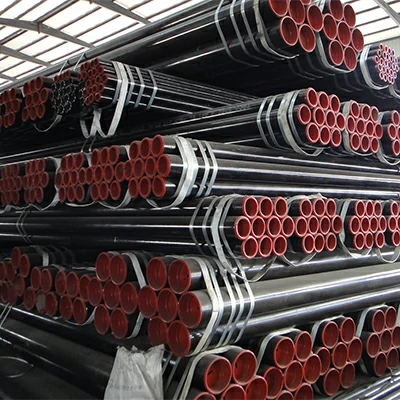Seamless steel pipes contribute to sustainability and recyclability through various aspects of their production, use, and end-of-life management.
Here’s how seamless steel pipes support sustainability and recyclability:
- Resource Efficiency: Seamless steel pipes are manufactured using a highly efficient process that minimizes material waste. The seamless manufacturing method involves extruding a solid steel billet through a piercing rod to create a hollow tube, resulting in minimal scrap or offcuts compared to traditional welded pipe production methods.
- Energy Efficiency: Seamless steel pipe production generally requires less energy compared to welded pipe manufacturing processes. The seamless process involves fewer steps and consumes less energy for welding, heating, and forming, contributing to overall energy savings and reducing carbon emissions.
- Durability and Longevity: Seamless steel pipes are renowned for their durability, strength, and resistance to corrosion, abrasion, and other environmental factors. Their long service life reduces the need for frequent replacement and maintenance, leading to lower resource consumption and waste generation over time.
- Recyclability: Steel is one of the most recyclable materials in the world, with a high recycling rate and a closed-loop recycling system. China Seamless steel pipe manufacturers At the end of their service life, seamless steel pipes can be recycled and reused to produce new steel products without loss of quality or performance. Recycling steel helps conserve natural resources, reduce energy consumption, and minimize waste sent to landfills.
- Circular Economy: Seamless steel pipes contribute to the principles of the circular economy by promoting resource efficiency, waste reduction, and closed-loop material cycles. As part of a sustainable materials management strategy, seamless steel pipes support a circular economy model where resources are reused, recycled, and repurposed to minimize environmental impacts and maximize value.
- Versatility and Adaptability: Seamless steel pipes are versatile materials suitable for a wide range of applications across various industries, including oil and gas, construction, automotive, manufacturing, and infrastructure. Their adaptability allows seamless steel pipes to fulfill diverse needs and functions, reducing the need for multiple materials and promoting resource efficiency.
- Carbon Footprint Reduction: By choosing seamless steel pipes over alternative materials or less sustainable options, industries and sectors can reduce their carbon footprint and environmental impact. Seamless steel pipes offer a sustainable solution for critical infrastructure, transportation networks, and industrial applications, helping mitigate climate change and promote environmental stewardship.
Overall, seamless steel pipes play a vital role in supporting sustainability and recyclability across multiple dimensions, including resource efficiency, energy savings, durability, recyclability, circular economy principles, and carbon footprint reduction. As a sustainable and eco-friendly material choice, seamless steel pipes contribute to building a more sustainable future for generations to come.
